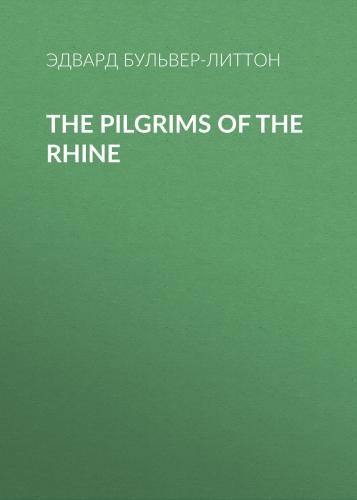Walled from the healthful air of hardy man;
Reared by cold hearts, and watched by jealous eyes,
His guardians jailers, and his comrades spies.
Each trite convention courtly fears inspire
To stint experience and to dwarf desire;
Narrows the action to a puppet stage,
And trains the eaglet to the starling’s cage.
On the dejected brow and smileless cheek,
What weary thought the languid lines bespeak;
Till drop by drop, from jaded day to day,
The sickly life-streams ooze themselves away.
Yet oft in HOPE a boundless realm was thine,
That vaguest Infinite,—the Dream of Fame;
Son of the sword that first made kings divine,
Heir to man’s grandest royalty,—a Name!
Then didst thou burst upon the startled world,
And keep the glorious promise of thy birth;
Then were the wings that bear the bolt unfurled,
A monarch’s voice cried, “Place upon the earth!”
A new Philippi gained a second Rome,
And the Son’s sword avenged the greater Caesar’s doom.
But turn the eye to life’s sequestered vale
And lowly roofs remote in hamlets green.
Oft in my boyhood where the moss-grown pale
Fenced quiet graves, a female form was seen;
Each eve she sought the melancholy ground,
And lingering paused, and wistful looked around.
If yet some footstep rustled through the grass,
Timorous she shrunk, and watched the shadow pass;
Then, when the spot lay lone amidst the gloom,
Crept to one grave too humble for a tomb,
There silent bowed her face above the dead,
For, if in prayer, the prayer was inly said;
Still as the moonbeam, paused her quiet shade,
Still as the moonbeam, through the yews to fade.
Whose dust thus hallowed by so fond a care?
What the grave saith not, let the heart declare.
On yonder green two orphan children played;
By yonder rill two plighted lovers strayed;
In yonder shrine two lives were blent in one,
And joy-bells chimed beneath a summer sun.
Poor was their lot, their bread in labour found;
No parent blessed them, and no kindred owned;
They smiled to hear the wise their choice condemn;
They loved—they loved—and love was wealth to them!
Hark—one short week—again the holy bell!
Still shone the sun; but dirge like boomed the knell,—
The icy hand had severed breast from breast;
Left life to toil, and summoned Death to rest.
Full fifty years since then have passed away,
Her cheek is furrowed, and her hair is gray.
Yet, when she speaks of him (the times are rare),
Hear in her voice how youth still trembles there.
The very name of that young life that died
Still heaves the bosom, and recalls the bride.
Lone o’er the widow’s hearth those years have fled,
The daily toil still wins the daily bread;
No books deck sorrow with fantastic dyes;
Her fond romance her woman heart supplies;
And, haply in the few still moments given,
(Day’s taskwork done), to memory, death, and heaven,
To that unuttered poem may belong
Thoughts of such pathos as had beggared song.
Yes, while thou hopest, music fills the air,
While thou rememberest, life reclothes the clod;
While thou canst feel the electric chain of prayer,
Breathe but a thought, and be a soul with God!
Let not these forms of matter bound thine eye.
He who the vanishing point of Human things
Lifts from the landscape, lost amidst the sky,
Has found the Ideal which the poet sings,
Has pierced the pall around the senses thrown,
And is himself a poet, though unknown.
Eno’!—my song is closing, and to thee,
Land of the North, I dedicate its lay;
As I have done the simple tale to be
The drama of this prelude!
Faraway
Rolls the swift Rhine beneath the starry ray;
But to my ear its haunted waters sigh;
Its moonlight mountains glimmer on my eye;
On wave, on marge, as on a wizard’s glass,
Imperial ghosts in dim procession pass;
Lords of the wild, the first great Father-men,
Their fane the hill-top, and their home the glen;
Frowning they fade; a bridge of steel appears
With frank-eyed Caesar smiling through the spears;
The march moves onwards, and the mirror brings
The Gothic crowns of Carlovingian kings
Vanished alike! The Hermit rears his Cross,
And barbs neigh shrill, and plumes in tumult toss,
While (knighthood’s sole sweet conquest from the Moor)
Sings to Arabian lutes the Tourbadour.
Not yet, not yet; still glide some lingering shades,
Still breathe some murmurs as the starlight fades,
Still from her rock I hear the Siren call,
And see the tender ghost in Roland’s mouldering hall!
